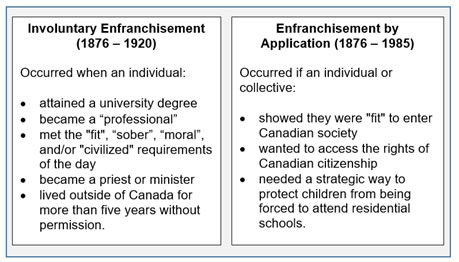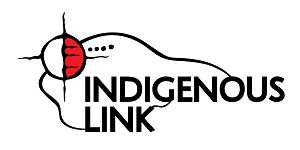
.jpg)
The legal assimilation of First Nations
Dating back to the Gradual Civilization Act of 1857, enfranchisement was an assimilationist policy that terminated an individual’s right to be considered First Nations under the Indian Act. When enfranchised, individuals lost any benefits associated with their previous First Nations identity and Indian status, exchanging them for the rights of Canadian citizenship. Whenever a man was enfranchised, his wife and children would be automatically enfranchised along with him.
In 1985, Bill C-31 eliminated the process of enfranchisement from the Indian Act. Individuals who had been enfranchised by application had their entitlement restored under the 6(1)(d) registration provision. Individuals who had been involuntarily enfranchised had their status restored under 6(1)(e) registration provision. This means individuals and their descendants were able to be registered and the provisions are part of the Indian Act today

However, today, people with a family history of enfranchisement are not able to access registration to the same extent as people without that family history.
The proposed amendments will ensure that people with a family history of enfranchisement are treated equally to with those without. This includes:
 &
&
